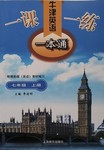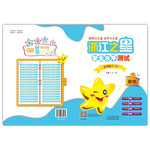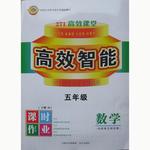ÌâÄ¿ÄÚÈÝ
¡ªDoes the young man standing there________ the company?
¡ªNo.The company is________ his father.
| A£®have possession of£»in the possession of |
| B£®in possession of£»in the possession of |
| C£®take possession of£»in possession of |
| D£®have possession of£»in possession of |
A
½âÎöÊÔÌâ·ÖÎö£º¿¼²é¹Ì¶¨´Ê×é¡£¹Ì¶¨´Ê×éhave possession of sthÓµÓÐijÎ¶¯´Ê¶ÌÓ£»in the possession of sbijÎïÓÉijÈËÓµÓС£ In possession of sthÓµÓÐijÎ½é´Ê¶ÌÓ£»¾äÒ⣺¡ªÕ¾ÔÚÄDZߵÄÄǸöÄêÇáÈËÓµÓÐÕâ¸ö¹«Ë¾Â𣿡ª²»£¬Õâ¸ö¹«Ë¾ÊÇËû¸¸Ç׵ġ£¹ÊAÕýÈ·¡£
¿¼µã£º¿¼²é¹Ì¶¨´Ê×é
µãÆÀ£º±¾Ì⿼²éÁËÃû´ÊpossessionµÄ¹Ì¶¨´Ê×飬have possession of sthÓµÓÐijÎ¶¯´Ê¶ÌÓ£»in the possession of sbijÎïÓÉijÈËÓµÓС£ In possession of sthÓµÓÐijÎ½é´Ê¶ÌÓ£»

Á·Ï°²áϵÁдð°¸
 Ò»¿ÎÒ»Á·Ò»±¾Í¨ÏµÁдð°¸
Ò»¿ÎÒ»Á·Ò»±¾Í¨ÏµÁдð°¸ Õã½Ö®ÐÇѧҵˮƽ²âÊÔϵÁдð°¸
Õã½Ö®ÐÇѧҵˮƽ²âÊÔϵÁдð°¸ ¸ßЧÖÇÄÜ¿Îʱ×÷ҵϵÁдð°¸
¸ßЧÖÇÄÜ¿Îʱ×÷ҵϵÁдð°¸
Ïà¹ØÌâÄ¿